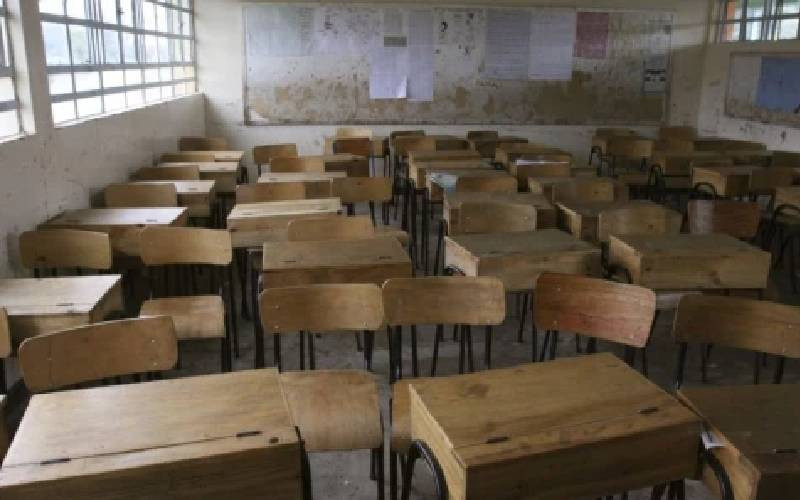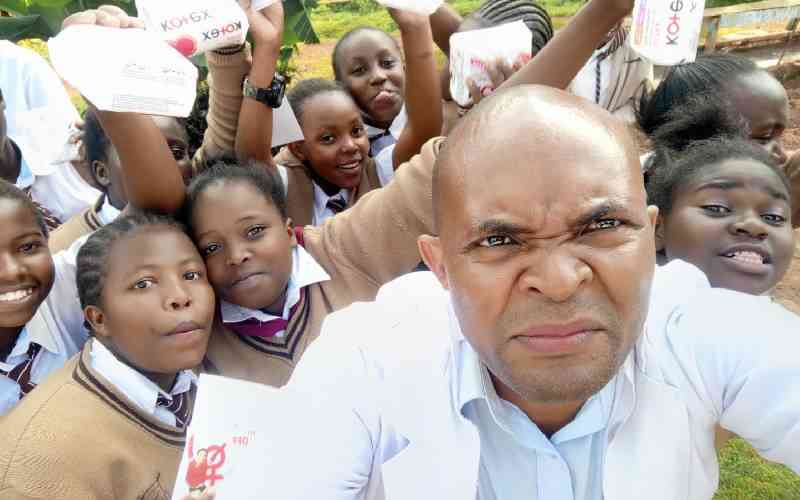Thousands of teachers across the country will have to wait longer to get promoted.
A report by the Teachers Service Commission (TSC) reveals that out of the 28,681 teachers who applied for promotion last year, only 11,231 were successful.
This means that 17,450 teachers will wait until the next round of promotions in 2025, TSC says. This is because promotions are done once in every three years.
The TSC Annual Report 2022/2023 provides a comprehensive assessment of the commission's operations.
It also highlights key achievements, challenges, emerging issues and proposed interventions during the period.
According to the report, TSC recruited 15,000 teachers on permanent and pensionable terms and engaged 26,000 interns; 4,000 for primary schools and 22,000 for junior secondary school.
The employment aimed to fill shortage arising from the 100 per cent transition from primary to secondary school and the implementation of the Competency-Based Curriculum (CBC).
TSC Chief Executive Officer Nancy Macharia emphasised the impact of the new teachers in achieving key educational goals.
"The initiative provides a chance for every child to fulfill their potential and rise to the highest level of accomplishment irrespective of social background," said Dr Macharia.
Macharia said the recruitment brought the total number of teachers to 364,258. Further, she said 8,367 teachers were deployed from primary school to JSS.
The TSC boss further said the commission retrained 229,000 primary school teachers and 55,125 teachers for JSS for CBC.
“The total number of teachers retooled for the new curriculum represents 82 per cent of the total number of teachers employed by the commission,” she said.
“The transition of Competency-Based Curriculum to junior school and the growth in number of basic learning institutions coupled with the above constraints has led to a significant teacher shortage despite government efforts."
Low ICT integration in teaching and learning due to inadequate infrastructure and staff, and mental health issues reported among employees posed a serious threat to the service.
The chairman, Jamleck Muturi, said the commission would continue to explore mechanisms to address gaps realized during implementation of its mandate in partnership with other stakeholders.
Stay informed. Subscribe to our newsletter
“In response to emerging trends in education, the commission will seek to review its legislative framework and develop relevant policy frameworks that will ensure smooth implementation of its mandate and provision of quality teaching in all basic public education institutions,” said Dr Muturi.
The report also revealed that 31,779 teachers and administrators (head teachers and deputy head teachers) were transferred. This was an increase from 13,196 transferred in the previous year.
This comes at a time the commission discontinued the delocalization policy adopted in 2018 that saw thousands of tutors moved to areas away from their home counties.
On mental health, the report raised concern over disciplinary issues. “Mental illness has manifested itself in disciplinary cases such as absenteeism, desertion, use of corporal punishment among others,” reads the report.
TSC indicated that it registered 1,007 disciplinary cases and has so far delivered verdict on 1,003. This means only three cases are pending.
However, the agency noted that the numbers of disciplinary cases dropped from 1,128 registered the previous year. This was attributed to the implementation of Teacher Induction, Mentorship and Coaching programme through which 11,623 heads of institutions and 2,234 field officers were trained as master trainers and trainers of trainers.
TSC also sensitised 21,922 employees on mental health and provided psycho-social support through counselling, assessment and referrals to 1,382 affected staff.
During the period, 49,185 teachers were registered, out of which 23,230 were degree holders, 2,371 had diplomas, 10,500 had primary teacher education certificates while 13,084 were Early Childhood Development Education (ECDE) certificate holders.
 The Standard Group Plc is a
multi-media organization with investments in media platforms spanning newspaper
print operations, television, radio broadcasting, digital and online services. The
Standard Group is recognized as a leading multi-media house in Kenya with a key
influence in matters of national and international interest.
The Standard Group Plc is a
multi-media organization with investments in media platforms spanning newspaper
print operations, television, radio broadcasting, digital and online services. The
Standard Group is recognized as a leading multi-media house in Kenya with a key
influence in matters of national and international interest.
 The Standard Group Plc is a
multi-media organization with investments in media platforms spanning newspaper
print operations, television, radio broadcasting, digital and online services. The
Standard Group is recognized as a leading multi-media house in Kenya with a key
influence in matters of national and international interest.
The Standard Group Plc is a
multi-media organization with investments in media platforms spanning newspaper
print operations, television, radio broadcasting, digital and online services. The
Standard Group is recognized as a leading multi-media house in Kenya with a key
influence in matters of national and international interest.








